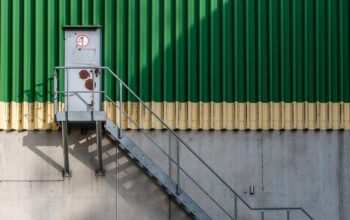Hook: Why Supply Chains Are More Exciting Than Ever in 2025
Picture your supply chain as a highway network during rush hour—traffic jams, roadworks, and detours. Now imagine if that network suddenly gained smart traffic signals, dynamic routes, and instant weather updates. Suddenly, everything flows smoother and faster. This is the transformation supply chains are undergoing in 2025, fueled by innovative frameworks and fresh thinking.
Here are five trending supply chain frameworks companies and experts are banking on right now, explained in everyday terms and backed by real-world examples.
1. Oracle Cloud SCM: The Brainy Supply Chain Ecosystem
Oracle’s latest Supply Chain Management platform goes beyond just tracking goods. It’s becoming an intelligent ecosystem that uses AI-driven demand forecasting and IoT-enabled logistics to think ahead.
- How it plays out: A manufacturer adjusting purchase orders dynamically based on geopolitical events like raw material shortages—minimizing excess stock or missed orders.
- What it means for businesses: More precise planning saves money and keeps products flowing even in uncertain times.
This framework turns supply chains into living organisms that sense change and adapt fast—much like advanced GPS rerouting you when traffic builds up.
2. Supply Chain Logistics Maturity Model: The Roadmap for Growth
Think of this framework as a GPS for your supply chain capabilities. Companies like those in manufacturing and oil & gas use models such as the Supply Chain Operations Reference (SCOR) to assess their processes.
- Real feedback from logistics leaders suggests this model gives a “north star” for improvement by showing exactly where a company stands today and what steps to take next.
- Surprise: Many companies discover they’re more advanced than they thought—encouraging a balance of pride with an eye on continuous improvement.
This framework suits organizations wanting to benchmark progress, set goals, and avoid guessing about their supply chain maturity.
3. Digital Transformation in SCM: Data Meets Sustainability
The digital wave is sweeping supply chains with automation, AI, and blockchain improving everything from inventory tracking to predictive analytics.
- Consider a retailer using AI to forecast not only demand but also potential disruptions like weather or supplier risks—then adjusting deliveries on the fly.
- On the green front, sustainability isn’t just nice-to-have; it’s now baked into logistics—routing trucks more efficiently and sourcing eco-friendly materials.
Here, technology doesn’t just add speed and accuracy; it powers a leaner, more earth-conscious chain, proving you can do well by doing good.
4. SME and Entrepreneur Supply Chain Policy Frameworks: Inclusive Growth
National strategies are evolving to support small and medium enterprises (SMEs) by integrating digital tools and green technologies into their supply chains.
- For example, Egypt’s new policies aim to bolster SMEs’ access to Industry 4.0 technologies like automation and ICT, helping them compete globally.
- This framework emphasizes cross-ministerial collaboration to streamline support, cut red tape, and ensure small players have a fair shot.
Small businesses get an upgrade: smarter, tech-enabled, and more sustainable, creating a vibrant and competitive ecosystem.
5. ESG Compliance Integrated Frameworks: Supply Chains That Care
Environmental, Social, and Governance (ESG) rules are no longer buzzwords—they’re critical pillars embedded in supply chain operations.
- Oracle and others now include real-time ESG compliance tracking to ensure suppliers and products meet sustainability and ethical standards.
- This means procurement teams make decisions balancing cost with environmental and social impact, much like choosing groceries that are both budget-friendly and responsibly sourced.
For businesses, this framework is about accountability and transparency, meeting consumer expectations and regulatory demands alike.
Final Thoughts: Supply chains in 2025 are evolving from rigid, linear systems into adaptive, tech-powered, and ethically grounded ecosystems. Whether it’s leveraging AI for smart forecasting, benchmarking maturity with proven models, or driving sustainability from policy to practice, these frameworks offer practical blueprints to thrive amid complexity.
For professionals navigating this landscape, understanding these frameworks is like learning new traffic rules and technology for smarter navigation—it’s the path to operational excellence and resilience in an ever-changing world.
Tags:
- Artificial Intelligence
- Digital Transformation
- Sustainability
- Supply Chain Strategy
- SME Development
Featured Image Description: Modern warehouse control room with digital dashboards and global map displays
References:
- https://2-data.com/whats-new-in-oracle-cloud-scm-smarter-supply-chains-in-2025/
- https://www.oecd.org/en/publications/sme-and-entrepreneurship-policy-in-egypt_195d9c43-en/full-report/the-strategic-framework-and-delivery-arrangements-for-sme-and-entrepreneurship-policy_e81ba8c5.html
- https://www.bibs.co.in/blog/future-trends-in-supply-chain-management-what-mba-students-should-know
- https://www.oecd.org/en/publications/advancing-adult-skills-through-individual-learning-accounts_08e1bdaf-en/full-report/component-4.html
- https://talkinglogistics.com/2025/06/11/introducing-a-supply-chain-logistics-maturity-model/
- https://www.lattc.edu/sites/lattc.edu/files/2025-06/LAC_CAMERA%20Fall%202025%20Schedule%20of%20Classes%2006%2030%202025.pdf
- https://www.scmr.com/archive/may-june-2025
- https://www.arizonacollege.edu/wp-content/uploads/2025/06/AZC_Catalog_BSN_20250627_No25_V11.pdf



